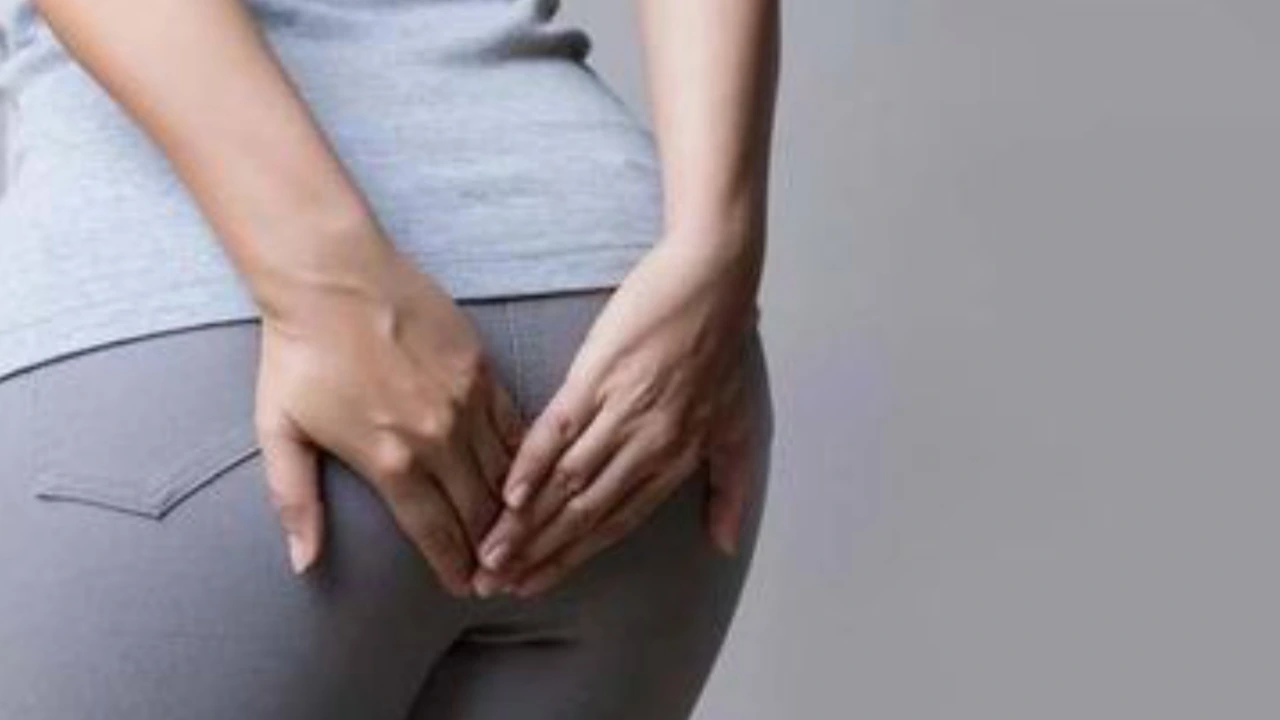Hemorrhoids or piles are swelling or inflammation of the blood vessels at the end of the large intestine (rectum) and anus. This condition is caused by increased pressure in the blood vessels around the anus. One of them is because of straining too hard.
Hemorrhoids or also known as piles (hemorrhoids) are a condition that generally does not cause symptoms and can improve in a matter of days. However, in severe conditions hemorrhoids can cause pain, itching, and bleeding after a bowel movement.
Causes of Hemorrhoids
The exact cause of hemorrhoids is unknown , but it is thought to occur when pressure on the abdomen or legs increases. This increased pressure then causes the blood vessels around the anus to become swollen and inflamed.
Several factors can increase the risk of developing hemorrhoids, namely:
- Constipation or prolonged constipation due to lack of fiber intake from food
- Frequently lifting heavy loads
- The habit of sitting for long periods of time
- Prolonged diarrhea
- The habit of straining during bowel movements
- Coughing and vomiting that lasts a long time
- Obesity or overweight
- Pregnancy
- History of hemorrhoids in the family
- Anal sex
In addition, several medical conditions are also thought to cause hemorrhoids, namely:
- Inflammatory bowel diseases, such as Crohn’s disease and ulcerative colitis
- Accumulation of fluid in the abdominal cavity (ascites)
- Rectal prolapse
- Spinal cord injury
- Colon cancer
Symptoms of Hemorrhoids
The signs and symptoms that appear due to hemorrhoids depend on the type of hemorrhoids experienced. Here is the explanation:
External hemorrhoids
This type of hemorrhoid is characterized by swollen blood vessels outside the anus so that they can be seen from the outside. Symptoms that can appear in external hemorrhoids or external hemorrhoids are:
- Itching or irritation, pain, and swelling around the anus
- Pain when touching the lump hanging outside the anus
- Bleeding during bowel movements or bloody stools
Internal hemorrhoids
Internal hemorrhoids occur when the swelling of the blood vessels is inside the anus so that the hemorrhoids are not visible or palpable from the outside. Symptoms that can be found in this type of hemorrhoid are:
- Bleeding during bowel movements without pain
- Pain when straining, if hemorrhoids cause a lump to protrude from the anus (prolapse)
- Itching in the anus
When to see a doctor
See a doctor if you experience hemorrhoid symptoms as mentioned above, or if symptoms do not improve after you have previously done self-care for 7 days. Also see a doctor if the above complaints are accompanied by symptoms of a more serious disease or condition, such as:
- Changes in stool color and consistency
- Long-standing changes in bowel habits
- Heavy bleeding
- Dizzy
- Faint
Hemorrhoid Diagnosis
In determining the diagnosis of hemorrhoids, the doctor will first ask about the symptoms and complaints felt, as well as the patient’s medical history. After that, the doctor will perform a physical examination to see if there are lumps , swelling, or irritation in the area around the anus.
Next, the doctor will perform several other examinations, namely:
- Digital rectal examination, to check for abnormalities in the blood vessels in the rectum and anus.
- Anoscopy, to see the lining of the anus and rectum using a lighted tube equipped with a camera
- Sigmoidoscopy, to view the inside of the colon and rectum using a long, camera-operated tube.
- Colonoscopy, to find out whether the cause of hemorrhoids is a disorder of the digestive system.
- Biopsy, to examine a sample of colon or rectal tissue further in a laboratory.
After the examination is complete, the doctor will classify the hemorrhoids based on their size and severity, namely:
- Grade I: small swelling appears inside the anal wall, but is not visible from outside the anus.
- Grade II: larger swelling that protrudes from the anus during defecation (BAB), but goes back in on its own after defecation.
- Grade III: there are one or more small lumps hanging from the anus, but they can be pushed back in.
- Grade IV: there is a large lump hanging from the anus and cannot be pushed back in.
Hemorrhoid Treatment
Although hemorrhoids can generally heal on their own within a few days, treatment must still be carried out to reduce the complaints felt. Some hemorrhoid treatment methods that can be done are:
Drugs
One method that can be used to treat hemorrhoids is with medication. These medications can be obtained at pharmacies or with a doctor’s prescription. Some of these medications include:
- Topical medications
Topical medications, such as hemorrhoid creams or ointments, can be used to relieve swelling and itching caused by hemorrhoids. Some topical medications can also be used to reduce hemorrhoid bleeding. - Corticosteroids
To relieve inflammation that occurs inside or outside the anus, the doctor will prescribe a corticosteroid cream to the patient. - Painkillers
Patients can take painkillers, such as paracetamol , to relieve pain and swelling caused by hemorrhoids. However, consult your doctor first regarding the type of painkiller that is right for you to avoid worsening symptoms. - Laxatives
If hemorrhoids are caused by constipation, the doctor will prescribe laxatives which function to help smooth bowel movements.
Non-surgical medical procedures
Some non-surgical medical procedures that can be used to treat hemorrhoids are:
- Hemorrhoid ligation
In this procedure, the doctor will tie the hemorrhoid using an elastic band so that the blood flow to the hemorrhoid can be cut off. - Sclerotherapy injections
In sclerotherapy, the doctor will inject a special medicine into the blood vessels around the hemorrhoid. This injection works to shrink the hemorrhoids without pain. - Coagulation Coagulation
is a procedure to burn hemorrhoid tissue using infrared. This procedure also serves to cut off blood flow so that hemorrhoids can shrink.
Operation
If hemorrhoids still cannot be cured with medication and simple procedures, the doctor will recommend surgery to treat hemorrhoids. Hemorrhoid surgery procedures that can be performed include:
1. Hemorrhoidectomy
The hemorrhoidectomy surgery procedure is performed by cutting the hemorrhoids through open surgery. During the surgery, the doctor will give a local anesthetic so that the patient does not feel pain.
2. Stapled hemorrhoidopexy
Stapled hemorrhoidopexy is a surgical procedure that uses a special stapler in the rectum, to stop blood flow to the hemorrhoids and shrink them.
Complications of Hemorrhoids
Hemorrhoids can last a long time and cause chronic pain. In addition, in rare cases, hemorrhoids can cause complications such as:
- Anemia due to bleeding
- Twisted hemorrhoids
- Blood clots in swollen blood vessels
- Infection of external hemorrhoids
- Skin damage
Hemorrhoid Prevention
Some ways that can be done to prevent hemorrhoids are:
- Consume foods rich in fiber.
- Increase your body’s fluid intake.
- Don’t delay defecation.
- Avoid excessive straining .
- Avoid sitting for too long.
- Do exercise regularly.
References :
Margetis, N. (2019). Pathophysiology of Internal Hemorrhoids. Annals of Gastroenterology, 32(3), pp. 264.
Mott, T., Latimer, K., & Edwards, C. (2018). Hemorrhoids: Diagnosis and Treatment Options. American Family Physician, 97(3), pp. 172–9.
Health Direct (2021). Health Topics AZ. Haemorrhoids.
National Health Services Inform Scotland (2021). Illnesses and Conditions. Haemorrhoids (Piles).
National Health Services UK (2019). Health A to Z. Piles (Haemorrhoids).
National Institutes of Health (2019). MedlinePlus. Hemorrhoids.
Johns Hopkins Medicine (2021). Conditions and Diseases. Hemorrhoids.
Cleveland Clinic (2021). Diseases & Conditions. Hemorrhoids.
Mayo Clinic (2021). Diseases & Conditions. Hemorrhoids.
Allarakha, S. MedicineNet (2020). What are the Differences Between Stapled Hemorrhoidopexy and Hemorrhoidectomy?
Bhargava, H. WebMD (2020). Hemorrhoids.
Chugh, P. Verywell Health (2021). Hemorrhoids.
Kahn, A., & Jewell, T. Healthline (2021). Causes of Hemorrhoids and Tips for Prevention.
Tresca, A. Verywell Health (2021). Hemorrhoids: Signs, Symptoms, and Complications.
Wedro, B. MedicineNet (2022). Hemorrhoids (Internal and External).
Whitlock, J. Verywell Health (2021). Causes and Risk Factors of Hemorrhoids.
Wong, C. Verywell Health (2022). How Hemorrhoids are Treated.

